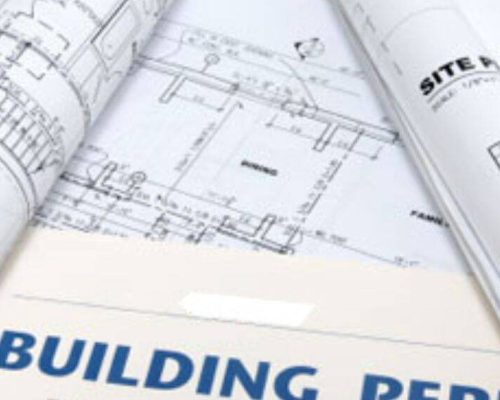A backyard office is more than just a luxury in today’s flexible work environment; it’s a wise move. In the age of remote work and flexible scheduling, a backyard office is more than just a fad; it’s a wise move. Adding a workspace in the backyard for Delaware homeowners helps them distinguish between their personal and work lives.
A detached office provides concentrated productivity without compromising the comforts of home, whether you’re a telecommuter, freelancer, or business owner. But it’s not as easy as putting one in a shed. To prevent expensive setbacks and make sure your structure adds actual value, it is crucial to understand local zoning rules, utility logistics, and contractor expectations.
Understanding Delaware Rules and Zoning

Permit and zoning requirements are important places to start. These differ by county in Delaware; the rules governing accessory structures are different in New Castle, Kent, and Sussex. In New Castle County, buildings smaller than 200 square feet are frequently exempt from full building permits; however, they still need to adhere to property line setback rules. Regardless of size, adding utilities like HVAC or electricity usually results in additional code compliance and inspections.
In Sussex County, even smaller structures (under 400 square feet) usually need placement permits and adherence to minimum setbacks. Meanwhile, Kent County may require more detailed site plans for accessory buildings. The rule of thumb: Always check with your local municipality, such as Dover, Newark, or Smyrna, before committing to a design. Reviewing the requirements for building permits in Delaware ensures you avoid delays and meet local compliance standards.
Contractor Tips for a Smooth Build

The success or failure of your backyard office project depends on your choice of contractor. Select a person who is qualified and knowledgeable about Delaware’s accessory structure regulations. In addition to being familiar with local codes, a competent contractor will oversee the permit application process, submit construction plans, and monitor inspections—all of which are crucial in communities like Wilmington and Middletown, where site-built offices frequently call for reviewed drawings.
Make sure your builder is aware of local setback regulations before signing a contract, such as Sussex’s 5-foot side and rear buffer zones or New Castle’s 200-square-foot permit threshold. Request detailed project estimates that cover foundation construction, utility installation, roofing, insulation, and final details.
Make payment plans and warranty terms clear. It’s also possible to uncover hidden expenses or possible shortcuts by comparing the estimates provided by kit installers and custom builders.
Selecting the Right Style and Materials
Cost, comfort, and how well the office complements your property are all impacted by the design and materials you select. Pre-painted kits or vinyl are typically inexpensive and easy to install. You can preview options on your property using 3D visual tools and financing offered by numerous Delaware suppliers.
Better sound insulation and a more upscale appearance are provided by cedar or painted wood models, which are advantageous for quiet concentration or conference calls. Metal sheds are less expensive initially and are resistant to deterioration, but they frequently need more insulation.
Think about your needs all year long. Because of Delaware’s climate, you’ll need windows that let in natural light but block out winter drafts and summer heat, as well as sturdy roofing and adequate insulation. Select foundations according to drainage requirements and durability: gravel pads are quick and affordable, while concrete slabs offer long-term stability.
Utility Planning: Power, Internet, and Comfort

In addition to structure, a real office space needs to be connected and comfortable. Internet, HVAC, lighting, and electrical wiring must all be installed correctly by certified subcontractors. Even for smaller structures, permits are usually needed when utilities are involved. Internet, HVAC, lighting, and electrical wiring must all be installed correctly by certified subcontractors. Streamlining payments for contractors and service providers using HVAC credit card processing can also simplify transactions during the build phase.
Factor in HVAC from the start—Delaware winters can be chilly, and summers sticky. If the office is far from your house, think about data cabling or robust Wi-Fi coverage. Additionally, contractors should plan for ventilation, water drainage, yard access, and integration with existing landscaping.
Avoiding Common Pitfalls
A frequent oversight is treating your office shed like a casual hobby space—which often breaks building codes. Once it’s used as an office, different rules apply—for accessibility, insulation, structural load, and life safety. Another common issue is underestimating costs: permit fees, utility hookups, foundation prep, and finishing details often add up.
When considering prefabricated units, verify that the design meets your intended use. Not all kits are built for year-round use or utility integration. Also, be mindful of zoning rules or HOA restrictions—ignoring them can result in costly modifications or even forced removal of the structure. It’s better to double-check regulations than face penalties later.
Smart Design Principles for Backyard Offices
Understanding that form follows function—spaces should be adapted to their intended use, whether for meetings, writing, or creative work—is the first step in designing an effective backyard office. Energy and mood are greatly enhanced by natural light, which also lowers electricity consumption and boosts output.
Often disregarded, acoustic control is crucial for preserving sound clarity, particularly in online meetings. Delaware’s climate necessitates a climate-first strategy, which means choosing HVAC and insulation to guarantee comfort throughout the year. Future additions, such as more equipment or storage, are possible with a flexible layout.
Foresight is also necessary for electrical planning; adding more outlets than originally required prevents expensive revisions and accommodates changing technological requirements. Long-term usability and efficiency are now guaranteed by careful planning.
Navigating HOA and Neighborhood Agreements

Even if you clear county permit requirements, Homeowners Associations (HOAs) in areas like Bear, Hockessin, or Middletown may have additional rules. These can govern building size, color, roof type, and exact placement. Many HOAs require approval from an architectural review board before you begin construction.
Getting HOA approval is not the same as getting permits from the local government. Both might be necessary, and non-compliant structures may have to be removed or fined for violating the HOA. Before you sign a contractor agreement, make sure you have read your community covenants carefully and obtained written approval. Delays and rework can also be avoided by selecting builders who are familiar with HOA compliance.
Environmental Factors Unique to Delaware
There are additional building considerations in Delaware’s marshes and coastal areas. Construction is impacted by stormwater drainage, water tables, and soil conditions. Soft soil or closeness to water may necessitate the use of piers or footings as special foundations in places like Lewes or Rehoboth Beach in order to prevent settling or flooding.
The Department of Natural Resources and Environmental Control (DNREC) in Delaware is in charge of environmental review zones, which include some properties. Before grading or construction can start, these might need more permits. In the event that the new structure changes the terrain or runoff patterns, even inland properties are subject to stormwater regulations. Long-term drainage problems or regulatory headaches can be avoided by anticipating these conditions in advance.
The Hidden Benefit—Property Value Enhancement
Despite being constructed for practical purposes, a backyard office can increase the value of your house, particularly in Delaware’s competitive real estate market. Homes with well-constructed, code-compliant outdoor structures are becoming more and more popular among buyers in the counties of Sussex and New Castle.
Professionals who operate home-based businesses or work remotely find a dedicated office particularly appealing. Documentation is essential to long-term value. Maintain a record of all inspections, permits, and contractor information. These show that the office was constructed by the code, which is crucial for future sales and appraisals. Completed workspaces with insulation, electricity, and HVAC are viewed as usable square footage that enhances lifestyle and promotes resale, in contrast to sheds or playhouses.
Insurance and Liability Planning

After constructing a backyard office, homeowners frequently neglect to update their insurance. The structure might require more coverage after it is wired or put to use for business purposes. Outbuildings are automatically covered by some homeowner’s policies, while others require riders for structures with utilities or higher replacement values.
After construction, let your insurer know. Think about extending your liability or umbrella policy if the office will host clients or perform any other business function. Additionally, before beginning any work, make sure your contractor is covered by their liability insurance. In the event of damage or claims, these minor actions help shield your investment and avoid coverage gaps.
Long-Term Maintenance Considerations
Like any other home improvement, your backyard office should be maintained regularly to remain both practical and eye-catching. Clean the gutters, check the caulking and roof, touch up any wood stains or paint, and plan seasonal HVAC inspections. Seal cracks and keep an eye out for pests to prevent moisture damage.
Maintain a file of repairs, inspections, and maintenance assignments. These documents demonstrate that the house was secure and well-maintained in case you decide to sell it in the future. A well-kept backyard office increases your long-term real estate investment, adds curb appeal, and adds daily value.
Conclusion: Making Your Delaware Backyard Office Work
In Delaware, building a backyard office is a great way to increase both your property value and work-life balance. When done properly, it combines privacy and usefulness. This entails being aware of local regulations, choosing long-lasting materials, and employing skilled workers who can adhere to deadlines and code.
A successful build depends on careful design, utility setup, and early planning from the ground up. Your backyard office can become more than just a place to work when zoning regulations are adhered to, insulation is installed correctly, and comfort is given top priority. It can also become a productive retreat and a long-lasting addition to your house.










